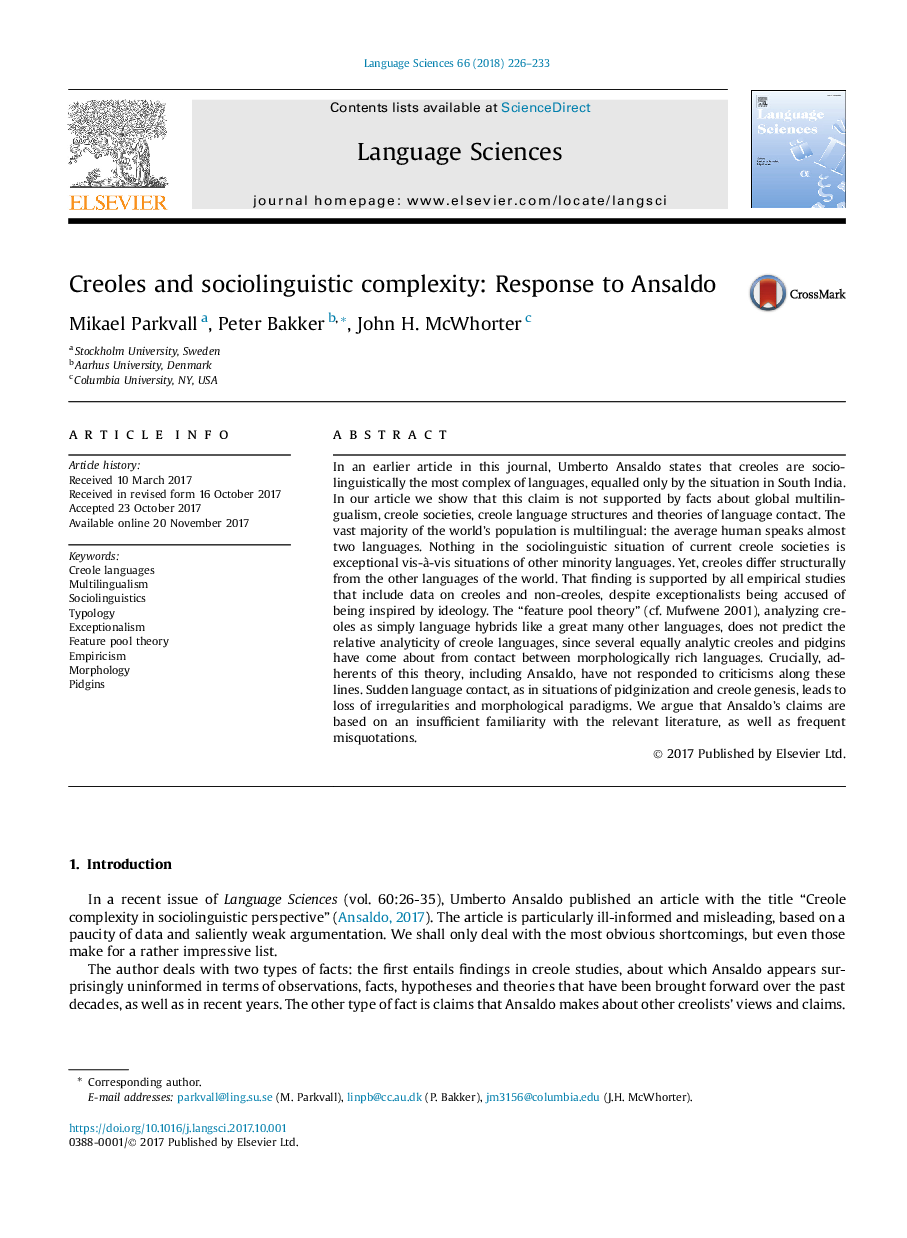| کد مقاله | کد نشریه | سال انتشار | مقاله انگلیسی | نسخه تمام متن |
|---|---|---|---|---|
| 7533852 | 1488137 | 2018 | 8 صفحه PDF | دانلود رایگان |
عنوان انگلیسی مقاله ISI
Creoles and sociolinguistic complexity: Response to Ansaldo
ترجمه فارسی عنوان
پیچیدگی کریول و جامعه شناختی: پاسخ به انصالدو
دانلود مقاله + سفارش ترجمه
دانلود مقاله ISI انگلیسی
رایگان برای ایرانیان
کلمات کلیدی
زبان کریول، چند زبانه، زبان شناسی اجتماعی، گونه شناسی، استثمارگرایی، نظریه استخر ویژگی تجربی مرفولوژی، پدیگینس،
موضوعات مرتبط
علوم انسانی و اجتماعی
علوم انسانی و هنر
زبان و زبان شناسی
چکیده انگلیسی
In an earlier article in this journal, Umberto Ansaldo states that creoles are sociolinguistically the most complex of languages, equalled only by the situation in South India. In our article we show that this claim is not supported by facts about global multilingualism, creole societies, creole language structures and theories of language contact. The vast majority of the world's population is multilingual: the average human speaks almost two languages. Nothing in the sociolinguistic situation of current creole societies is exceptional vis-Ã -vis situations of other minority languages. Yet, creoles differ structurally from the other languages of the world. That finding is supported by all empirical studies that include data on creoles and non-creoles, despite exceptionalists being accused of being inspired by ideology. The “feature pool theory” (cf. Mufwene 2001), analyzing creoles as simply language hybrids like a great many other languages, does not predict the relative analyticity of creole languages, since several equally analytic creoles and pidgins have come about from contact between morphologically rich languages. Crucially, adherents of this theory, including Ansaldo, have not responded to criticisms along these lines. Sudden language contact, as in situations of pidginization and creole genesis, leads to loss of irregularities and morphological paradigms. We argue that Ansaldo's claims are based on an insufficient familiarity with the relevant literature, as well as frequent misquotations.
ناشر
Database: Elsevier - ScienceDirect (ساینس دایرکت)
Journal: Language Sciences - Volume 66, March 2018, Pages 226-233
Journal: Language Sciences - Volume 66, March 2018, Pages 226-233
نویسندگان
Mikael Parkvall, Peter Bakker, John H. McWhorter,
